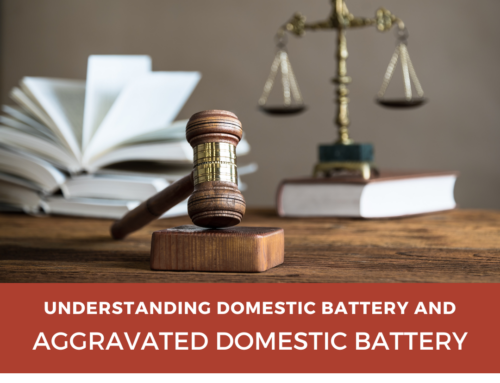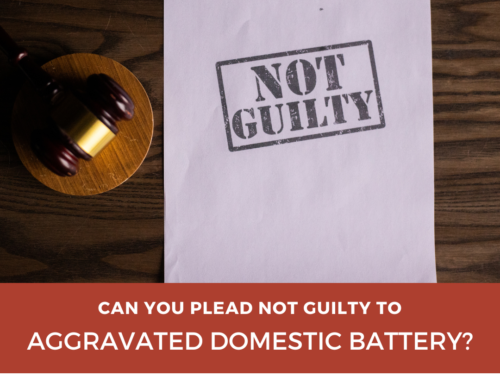False allegations of domestic violence are far more common than you think – especially when it comes to divorce. Here’s what you need to know about domestic violence allegations during divorce (and what to do if you’re facing them).
Domestic Violence Allegations During Divorce
During divorce, couples often fight a lot – and often, one party wants to “win.” That sometimes leads to false allegations of domestic violence. A simple argument can lead to one party (often one who wants to get custody of the children or who is seeking spousal support) saying that the other party has abused him or her in some way. Some people think that domestic violence allegations will gain them legal leverage in a divorce case.
Domestic Battery vs. Aggravated Domestic Battery Allegations During Divorce
In Illinois, the state can charge you with domestic battery or aggravated domestic battery.
Domestic Battery Allegations During Divorce
Domestic battery is defined this way by Illinois law:
- Causing bodily harm to any family or household member
- Making physical contact of an insulting or provoking nature with any family or household member
That means a small push, holding someone’s arm or any minor physical contact could be enough to convict you – but again, many vengeful spouses allege domestic violence during divorce when nothing really happened at all.
If you’re convicted of domestic battery, it’s a Class A misdemeanor. You could go to jail for up to a year and pay a fine of up to $2,500. If you have a previous domestic battery conviction, it becomes a Class 4 felony. That means you’re looking at up to 3 years in prison and a fine of up to $25,000.
Aggravated Domestic Battery Allegations During Divorce
Aggravated domestic battery is a bit more extreme – it occurs when a person intentionally impedes another person’s normal breathing or circulation by applying pressure on that person’s throat or neck, or by blocking his or her nose or mouth. The law calls it strangling. If the court convicts you of aggravated domestic battery, it’s a Class 2 felony. That means you could go to prison for 3 to 7 years. If you have a prior aggravated domestic battery conviction, you could serve between 3 and 14 years in prison.
Your soon-to-be ex-spouse could also get an order of protection against you. In fact, he or she can do that even without a domestic violence conviction – and it can prevent you from:
- Entering your own home
- Going near or even calling or talking to the alleged victim
- Seeing your children
- Accessing your own children’s medical or school records
- Keeping any weapons you own
It can also require you to attend counseling, appear in court or give personal property to the alleged victim.
What Should You Do if Your Ex Accuses You of Domestic Battery During Divorce?
If you’re facing allegations of domestic violence during your divorce, you may want to get in touch with a Chicago domestic battery defense attorney as soon as you can. Your lawyer will be able to give you the legal advice you need to start moving forward, and he can defend you in court if necessary.
Call us right away at 847-920-4540 or fill out the form below for a free consultation – we may be able to help you clear your name so you can move forward with your divorce.









Leave A Comment
You must be logged in to post a comment.